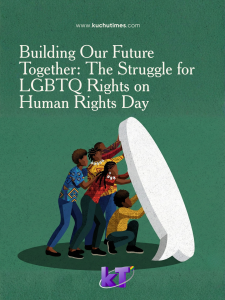Human Rights Awareness and Promotion Forum, last week, launched the first ever consolidated report detailing human rights violations against key populations in Uganda. The report focuses on the period 2018-2020.
According to the report, there was an 86% increase in incidents that can be classified as human rights violations against key populations in Uganda between 2018 and 2020.
The most documented violations according to the report include arbitrary detention and arrested of KPs, stigma and discrimination-something that greatly hinders their access to justice. They also face challenges in access to health care, particularly HIV/AIDS services as well as exposure to sexual abuse. It was also highlighted that that the criminalization of mot key populations in Uganda has pushed them further underground hence hindering proper health care as well as triggering mental health issues.
Ms Dora Kiconco, the Executive Director of UGANET and chief officiant of the report hailed the HRAPF team for taking time to address the issue of human rights violations against KPs. She further urged all present as well as people in power to bring their two cents to this conversation that has been long overdue.
Mr Edward Mwebaza from HRAPF said that they hoped the report would help the government in revising and rectifying the laws that are continuously being used against key populations. He further emphasized HRAPF’s commitment to highlighting as well as bridging the legal and justice gaps faced by all the different categories of key populations in Uganda.
The report which was funded by Global Fund saw HRAPF working with a number of key population organisations for data collection. These included Blessed Rwenzori Uganda, HOPE Mbale, Health and Rights Initiative, IceBreakers Uganda, Alliance of Women Advocating for Change, Lady Mermaid’s Bureau, Uganda Harm Reduction Network among many others.
This report is the second to be published by HRAPF consolidating the human rights violations suffered by selected Key Population (KP) groups for a period of one year. The first report recorded violations committed against selected KPs in 2018.
This report provides information on verified human rights violations committed against Men who have Sex with Men (MSM), transgender persons, sex workers and People Who Use and Inject Drugs (PWUIDs) during 2019. Most of the selected KP groups experience criminalisation of their identity or behaviour associated with their group. MSM are criminalised under the criminalisation of ‘carnal knowledge against the order of nature’ under the Penal Code; sex workers are criminalised under the prohibition of prostitution in the Penal Code and PWUIDs are directly affected by the criminalisation of individual possession of narcotic drugs under the Narcotic Drugs and Psychotropic Substances Control Act, 2016.
Transgender persons are not directly criminalised under any provisions of law, however, they are denied legal recognition of their lived gender which can cause considerable difficulties in everyday life since their physical appearance would not necessarily reflect the same gender as their identification documents.
1 Transgender persons are also often taken to be ‘homosexuals’ and therefore run the risk of being arrested under section 145 of the Penal Code Act on the basis of their appearance.
2 Provisions criminalising ‘personation’ in the Penal Code are also misapplied to arrest and charge transgender persons.
HRAPF has been publishing the annual Uganda Report of Violations based on Sexual Orientation and Gender Identity since 2014, which the violations of human rights of Lesbian, Gay, Bisexual and Transgender (LGBT) persons that were recorded and verified in a particular year. HRAPF has also been publishing the annual Report on the Protection and Violation of the Human Rights of Sex Workers in Uganda since 2016. From 2018 onwards, HRAPF has also been publishing an annual report on the Protection and Violation of the Human Rights of People Who Use and Inject Drugs. This report, recording and considering violations committed against various KPs in a single report, bears many similarities to HRAPF’s three other annual violations reports.




